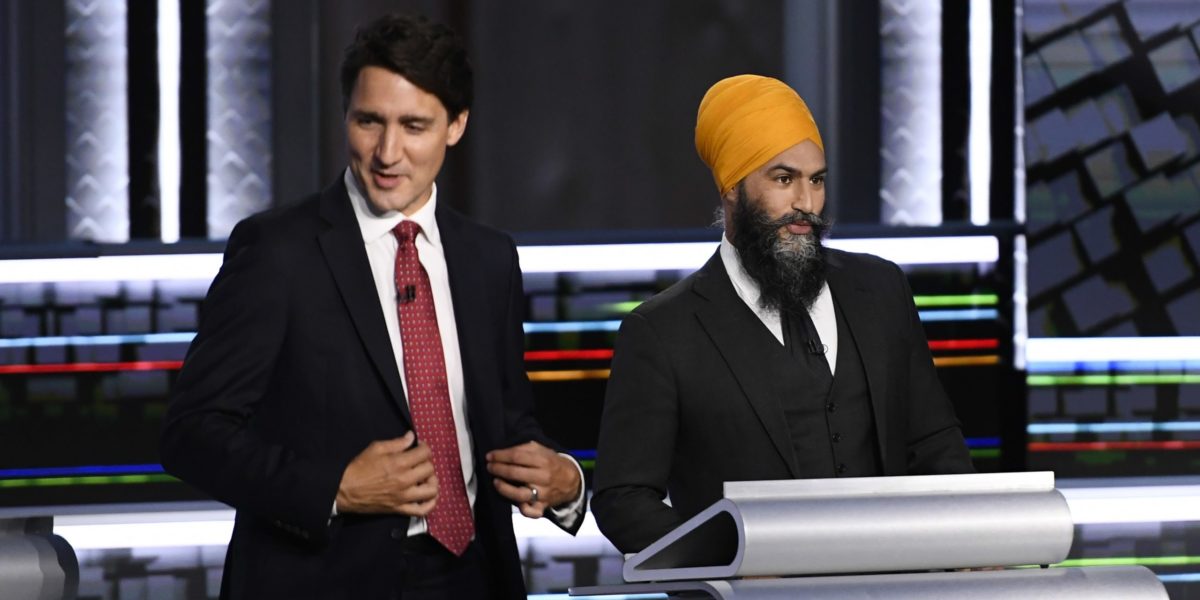The commentary on the agreement between the Liberals and the NDP has been illustrative in general of what is wrong with the coverage of politics in Canada. It has been all about the political game, who got the best of whom, and who the ultimate political winners and losers might be.
There has been a paucity of commentary about the benefit that might accrue to Canadians if the agreement should succeed in getting the minority Liberal government to actually deliver. Take for example the provision of funding for a new dental care program, in the recent Liberal budget, which is the immediate down payment on the agreement.
I’ve been waiting in vain for a conversation among pundits about the positive difference that free dental care will make for children under twelve in low income families, as well as their immediate families and in the life of society as a whole. Free dental care will be qualitative and quantitative leap in the provision of preventative health care. Good oral health care is a foundation stone of good health, which is why for New Democrats it represents a long overdue further realization of the dream that inspired Tommy Douglas in creating Medicare.
Of course, as always, the proof will be in the pudding, and in the details of implementation. Asking patients to pay up front for later reimbursement will be a possible Liberal trick to watch out for, a policy that would discourage use and reduce costs, and contravene the spirit and practice of Canadian Medicare. Something else to watch out for will be whether the program is actually administered by the government, or contracted out for an enormous fee to some Liberal friendly company that is already salivating at the prospect.
There has also been a paucity of talk about the potential benefits of pharmacare actually happening, instead of being endlessly promised by Liberal minority and majority governments, as has been the case for decades. The dental care victory is different in this respect. It stands to be the first such health care program that might come into existence without decades of foreshadowing in Liberal election campaigns. After all, it was only last year that the Liberals joined with the Tories in voting against an NDP motion advocating dental care.
The Liberal-NDP agreement will only be as binding as the authenticity of Liberal intent, and subsequent Liberal actions on other aspects of the agreement for issues like affordable housing and climate change. If the recent budget is any indication, Jagmeet Singh and the NDP Caucus have a challenging task ahead of them. The budget shell game of reducing a fossil fuel subsidy with one hand and putting it back in spades with money for carbon capture and sequestration, is not, despite Tory paranoid rhetoric to the contrary, the behaviour of a government dedicated to the kind of transformative energy transition away from fossil fuels that the planet needs.
Nor are the current inadequate attempts to deal with the housing crisis likely to cut it either. But the virtue of the agreement is that the Liberals will have the time to do more than the pre-election virtue signalling of the last few years. They stand to be judged on their actions, and if they don’t deliver, an NDP withdrawal from the agreement will be more than just the usual opposition criticism. It will be a clear statement of failure, and for those who had hoped for better, a good reason to vote NDP in the ensuing election. Having said this, people that most want the agreement to fail are the Tories.
The idea of not having an election until 2025 seems to be too much for them to bear, and is causing a clear case of Liberal-NDP derangement syndrome, a syndrome which never really goes away, but which flares up from time to time when something good threatens to happen.



